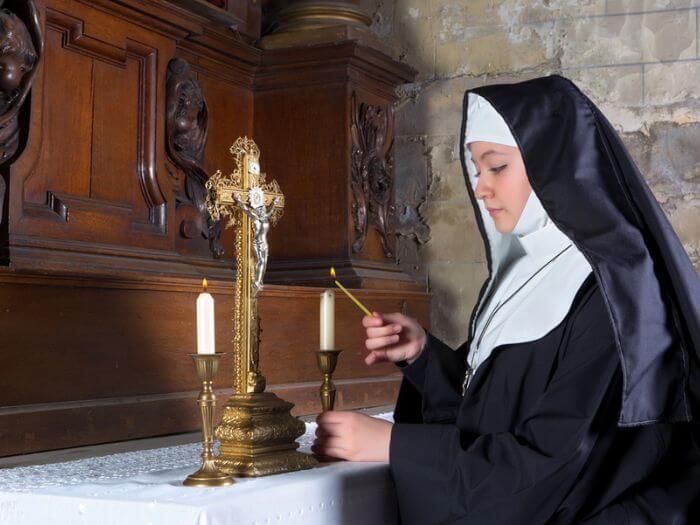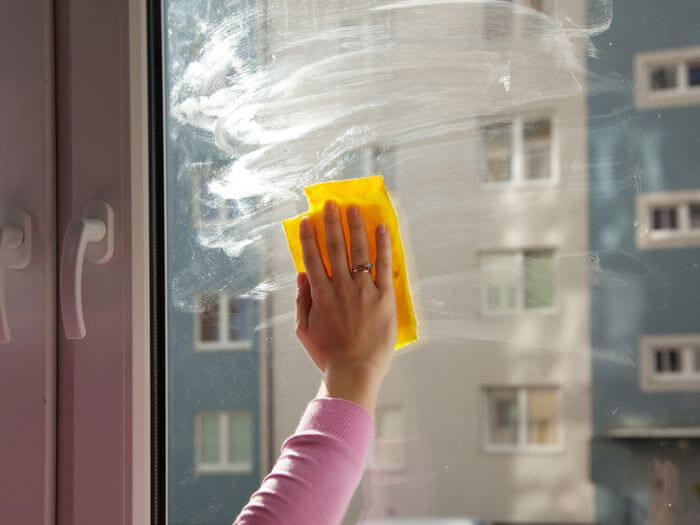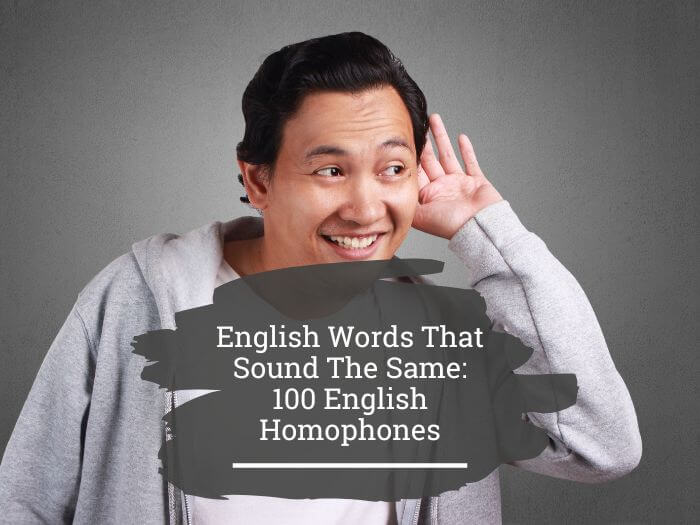How do you pronounce “sun”? And how do you pronounce “son”?
Exactly in the same way, right?
English words that sound the same are called homophones. They are words that have the same pronunciation but different spelling.
In this post, we’ll look at the 100 most frequent English words that sound the same that may create some confusion. I’ll also show you plenty of examples taken from English stories I’ve written for you.
But before we start, I have to mention something important.
If you read my article about English words with multiple meanings, you might remember that the same word can have many meanings.
In this post, I've included only one meaning for each homophone, but there may be more! The best way tool to find out about the others is to use a good English dictionary, like the Oxford Learner's Dictionary.
That said, let’s begin!
Table of Contents
English Words That Sound The Same A-D

1 Air/Heir
Pronunciation: /eə(r)/
“Air” is what you breathe.
- Example: The fresh mountain air felt wonderful on my face.
An heir is a person who receives money or property from somebody when they die.
- Example: The king’s heir will take the throne after his reign.
2 Ate / Eight
Pronunciation: /eit/
“Ate” is the past tense of the verb “eat.”
Here’s an example from my book, 101 Conversations in Simple English:
Jacob: It was a very quiet day. We didn’t cook anything until the evening.
Alice: No one ate before dinner?
Lawrence Windsor: I didn’t have lunch at home because I went out to visit some friends.
“Eight” is a number.
This is a personal example from my bio.
Olly Richards is a foreign language expert and teacher. He speaks eight languages and has authored over 30 books.
3 Aloud / Allowed
Pronunciation: /əˈlaʊd/
“Aloud” is an adverb meaning to speak in a voice that other people can hear.
- Example: Try reading stories aloud. This can help you with pronunciation.
“Allowed” is the past tense of the verb “allow.”
- Example: You’re not allowed to park their car next to the building.
4 Bare / Bear
Pronunciation: /beə(r)/
When something is bare, it’s not covered with any clothes.
- Example: The walls were bare after they removed the paintings.
“Bear” is a large mammal. As far as I know, most bears are bare, and if you see them while walking in a forest…good luck!
This word appeared in one of my stories from my book, Short Stories in English for Beginners: Read for pleasure at your level, expand your vocabulary and learn English the fun way!
Here it is:
Sylvia looked. On the floor, in the dust, there were several very large footprints. ‘What do you think these footprints could be?’ asked George. ‘I think they’re bear footprints!’ answered Sylvia. ‘A bear, Sylvia?! There aren’t any bears around here! The closest bears are hundreds of miles away!’ ‘Then I have no idea. But let’s get out of here!’
“To bear” is also a verb. One of its meanings is “to be able to accept and deal with something unpleasant.”
- Example: I can’t bear the thought of being chased by a bear.
5 Buy / By / Bye
Pronunciation: /bai/
“Buy” is a verb that means “to purchase something.”
Here’s an example from my book, Short Stories in English for Beginners:
Eric walked across the beach. He was thinking. He looked at his watch and said, ‘The watch is mine. But I didn’t buy it. I found it. I took it from another pirate.’
“By” is a preposition that can mean, among other things, “next to.”
- Example: Go sit by your brother.
“Bye” is what you say to someone when you leave.
Here’s an example from 101 Conversations in Simple English:
Robert Green: I’ll call him right now…. Hello? Hi, Michael. I need a favour. Can you come to the shop? I have some drawings that appear to be original works by Turner. Yes, William Turner! Okay, I’ll see you then. Bye!
6 Ball / Bawl
Pronunciation: /bɔːl/
A “ball” is a round object (or a thing that has been formed into a round shape).
Here’s an example from Short Stories in English for Beginners:
Laura picks up the ball. Then, as suddenly as it started, the light goes out. The ball feels very strange in her hand. It’s almost too cold. Laura doesn’t like the feeling. She drops the ball. Then she goes back to the barbecue.
“To Bawl” means to cry loudly and uncontrollably. Please don’t bawl!
- Example: The kid began to bawl when his toy broke.
7 Beet / Beat
Pronunciation: /biːt/
A beet is a vegetable.
- Example: She roasted the beet for her salad.
If you beat someone, you win against them.
This is an example from Short Stories in English for Beginners:
‘Listen to me!’ shouted Carl. Eric ignored him. The English ships’ cannons kept firing. ‘Let me see it!’ continued Carl. ‘Let me see the watch!’ he shouted. ‘Then we can win the battle! We can beat the English!’

8. Cell / Sell
Pronunciation: /sel/
All plants and animals are made up of cells. You can’t see cells though (unless you have a microscope) because these are the smallest units of living matter.
- Example: I love you with all the cells of my body!
A cell is also a room with metal bars where criminals are kept. Fortunately, I’ve never lived in one of those.
- Example: The prisoner was locked in a small cell.
If you sell something, you give that thing to someone in exchange for money.
Here’s an example from my book, 101 Conversations in Simple English:
Natalie: What were you doing there?
Man in the hat: Honestly, I was investigating some stolen art. There are lots of stolen works of art in Camden Market. I wanted to see who was going to try and sell works of art in the shops, to try and catch some art thieves.
9. Cent / Scent
Pronunciation: /sent/
A “cent” is a coin. Divide 1 dollar into 100 parts and you’ll have a cent. You can’t buy much with it.
Here’s an example from Short Stories in English for Beginners:
A short while later we head for Armando’s flat. We are staying there for the term. We get a taxi. After 30 minutes, we arrive in Barcelona centre. The taxi costs 41 euros and 50 cents.
“Scent” is a noun meaning a distinctive smell or fragrance. You can’t buy much with a scent either.
- Example: I love the scent of roses.
10. Complement / Compliment
Pronunciation: /ˈkɒmplɪment/
“Complement” is a noun meaning something that completes or improves something else. It can also be a verb.
I use the noun “complement” to describe my book:
Suitable for beginners and intermediate learners alike, “101 Conversations in Simple English is the perfect complement to any English course and will give you the ultimate head start for using English confidently in the real world!
“Compliment” is a comment that expresses praise for someone.
- Example: I received lots of lovely compliments on my new dress.
11. Deer / Dear
Pronunciation: /dɪə(r)/
“Dear” is what you write at the beginning of letters or emails.
In a story from Short Stories in English for Beginners, one of the characters finds a letter. Here’s the passage from my tale:
Alan was so surprised he didn’t know what to do.
So he opened the letter. It read:
Dear David, Lucy and Alan,
Thank you for reading my letter. As you know, I have helped you find a number. There are two other people with numbers. These individual numbers mean nothing…
A deer is an animal often found in forests. You’ve seen some if you’ve watched Bambi, a popular Disney animated movie.
- Example: A deer jumped across the road while I was driving home.
12. Die / Dye
Pronunciation: /daɪ/
If you dye your hair, you change its colour.
- Example: She dyed her hair blue.
If you die, you’ll no longer be able to dye your hair because you’re no longer alive. That’s sad!
Here’s an example from one of my stories in Short Stories in English for Beginners:
Soon Aldin saw a warning on his computer screen. Kalkian military units were coming. They waited near the spaceship. Suddenly, the radio link came to life again. ‘Give us Maha. Or you die,’ said a voice.
13. Dual / Duel
Pronunciation: /ˈdjuːəl/
“Dual” is an adjective that means “having two parts.”
- Example: He holds dual citizenship in two countries: Italy and Australia.
A “duel” is a fight between two people (often with weapons). You’re lickely to see a duel in Western movies like The Good, the Bad and the Ugly, one of my absolute favourites!
- Example: The knights engaged in a duel.
English Words That Sound The Same E- I
14 Eye/I

Pronunciation: /aɪ/
“Eye” is the organ you need to see. If you’re reading this, I guess you have at least one. I used this word many times in my stories. Here’s an example from Short Stories in English for Beginners:
Suddenly, the two friends heard a noise in the kitchen. Sylvia and George ran to the room. They could not believe their eyes. A big hairy creature was standing in the kitchen!
“I” is a subject pronoun used to refer to yourself.
- Example: I went to the market.
15 Earn / Urn
Pronunciation: /ɜːn/
If you earn money, you receive it because you have a job.
In Short Stories in English for Beginners, I wrote this:
“‘Well yes, Raj,’ says Sophie. ‘Laura works a lot, but it’s normal. And hey! This is her big opportunity. She may be company president someday!’ ‘Yeah, but she doesn’t earn enough,’ comments Raj. ‘That’s true,’ agrees Sophie. ‘But her pay will improve.”
“Urn” is a decorative container used for holding the ashes of a dead person.
- Example: The urn contained the cremated remains of the king.
16 Flour / Flower
Pronunciation: /flaʊə(r)/
“Flour” is what you need to bake bread, cakes, and biscuits. It can be brown or white.
- Example: You need two cups of flour to bake the cake.
A “flower” is the coloured part of a plant. Roses and daisies are flowers. Flowers can be brown, white, yellow, green— many colours!
- Example: Let’s go and pick some beautiful flowers from the garden.
17 Find / Fined
Pronunciation: /faɪnd/
“Find” is what you do to discover or locate something.
Here’s an example from 101 Conversations in Simple English:
You’re very kind, both of you. I hope we find the thief. Those works of art are very valuable. They are worth hundreds of thousands of pounds. And they are very important to me. They are my most prized possession.
“Fined” is the past tense of the verb “fine,” which means “to impose a monetary penalty.” It’s very annoying to be fined. I’ve never met anyone who likes that!
- Example: I was fined for parking in a no-parking zone. Now I have to pay 97 dollars!
18 Fore / Four
Pronunciation: /fɔːr/
“Fore” is an adjective that means “located at the front of a ship, an aircraft or an animal.”
- Example: The fore legs of a giraffe are strong and straight.
“Four” is a number (between 3 and 5).
- Example: She has four cats at home.
19 Great / Grate
Pronunciation: /ɡreit/
“Great” is an adjective meaning excellent or very large.
This is an example from 101 Conversations in Simple English:
Lawrence Windsor: Yes, I think you should. I think the three of you could work well together.
Natalie: That sounds like a great idea!
“To grate” is a verb meaning to shred food into small pieces using a grater. I grate carrots before I eat them. They’re delicious that way!
- Example: Please grate the cheese for the pasta.
20 Guessed / Guest
Pronunciation: /ɡest/
“Guessed” is the past tense of the verb “guess.” It means “to try and give an answer or make a judgement about something without being sure of all the facts.”
Here’s an example from Short Stories in English for Beginners:
“David looked at the man suspiciously once again. The man was old. He seemed nice. He guessed it would not be a problem. ‘OK,’ he said. ‘Follow me!’
A “guest” is a person who’s invited to visit or stay somewhere.
Here's another example from Short Stories in English for Beginners:
‘Good morning, Captain! You’re finally back!’ Then he looked at Carl and Susan and added, ‘And you’ve brought guests?’ Eric smiled. ‘Yes, Frank. I did,’ he answered.
21 Gilt / Guilt
Pronunciation: /ɡɪlt/
“Gilt” is a thin layer of gold that’s applied to a surface as a decoration.
- Example: The picture frame was decorated with gilt edges.
“Guilt” is a feeling. You’re likely to have this feeling when you’ve done something wrong or committed a crime.
- Example: I felt a sense of guilt after breaking my grandmother’s vase. (True story.)
22 Hair / Hare

Pronunciation: /heə(r)/
“Hair” is what you have on your head – unless you’re bald 🙂.
Here’s an example from my book, Short Stories in English for Beginners:
I’m tall, about six feet. I have longish brown hair. My eyes are green and I have a wide mouth. I have a strong build.
A “hare” is a fast-running mammal similar to a rabbit.
- Example: A hare is way faster than a turtle. So how come the turtle arrived first?
23 Hall / Haul
Pronunciation: /hɔːl/
A “hall” is a corridor or a large room for gatherings.
I used this word when telling a story from Short Stories in English for Beginners:
I wake up early at the hotel and have a shower. I order some food to my room. I have little money at this point. But I’m hungry again so I take my time and enjoy. After that, I get dressed and leave. I notice the time on a clock in the hall. It’s ten o’clock in the morning. I wonder if Mum has talked to Julia yet.
If you haul something heavy, you move it using a lot of effort.
- Example: A large wagon was used to haul in gravel and big rocks.
24 Heal / Heel
Pronunciation: /hiːl/
When an injury heals or when something heals it, it becomes healthy and normal again.
- Example: Minor burns will usually heal without further treatment.
A “heel” is the back part of the foot or a shoe.
- Example: The heel of her shoe broke as she was walking.
25 Higher / Hire
Pronunciation: /ˈhaɪə(r)/
“Higher” is the comparative form of the “high.”
- Example: Prices are getting higher and higher.
If you hire someone, you employ them or pay them to do a particular job for you.
Here’s an example from 101 Conversations in Simple English:
Natalie: You called my university?
Amelia: Absolutely! I wouldn’t hire a new curator for the museum without checking their academic records first. And I have to say, yours are impeccable!
26 Hour / Our
Pronunciation: /aʊə(r)/
An hour is 60 minutes.
This is my example from 101 Conversations in Simple English:
Detective Smith: Yes, if the GPS has been used recently, they can locate the phone. They’ve found it! They say that the mobile phone was detected in Newcastle a few hours ago.
Alice: Newcastle? That’s five hours away… What is he doing there?
“Our” is a possessive pronoun for the first person plural (we).
I used it more than 10 times in 101 Conversations in Simple English. Here’s an example:
Man in the hat: Alice, Natalie, I’ve been waiting for you.
Natalie: How do you know our names?!
Man in the hat: I know many things….
26 Idle / Idol
Pronunciation: /ˈaɪdəl/
When someone or something is “idle” it means they’re inactive or not working.
- Example: The car remained idle in the driveway for days.
An idol is a person who’s greatly admired or loved by their fans. I’m sure you’ve had at least one idol in your life.
- Example: Taylor Swift became an idol for millions of fans around the world.
27 Incite / Insight
Pronunciation: /ˈɪnsaɪt/
When you “incite” someone you encourage them to behave violently or illegally by making them excited or angry.
- Example: Inciting violence is always wrong.
“Insight” is a noun that means a deep understanding of something.
- Example: Students must gain more political insight and more social awareness.
English Words That Sound The Same J-M

28 Jam / Jamb
Pronunciation: /dʒæm/
I always have jam for breakfast, It’s a sweet spread made from fruit and sugar.
- Example: I spread strawberry jam on my toast every morning.
A “jamb” is the vertical side of a door or window frame.
- Example: Door jambs were usually green metal but sometimes made of bronze or steel.
29 Jeans / Genes
Pronunciation: /dʒiːnz/
A gene is the part of a cell in a living thing. I have genes and you have them too. This term is often used in science.
- Example: Multiple genes may simultaneously affect behavioural traits.
You can't wear genes. But you can wear jeans! By the way, do you know why jeans are called that way? The name comes from Janne, the Old French name for Genova, an Italian city, where the heavy cotton that we now use for jeans was first made.
- Example: I always wear a pair of jeans to work.
30 Junkie / Junky
Pronunciation: /ˈdʒʌŋki/
A junkie is a drug addict or a person who’s obsessed with a particular activity or thing.
- Example: I’m a language learning junkie who spends hours learning languages every day. (True story!)
But if you say something is “junky” you mean it’s of very poor quality (like junk).
- Example: None of my language courses are junky – I promise you! (Another true story.)
31 Kernel / Colonel
Pronunciation: /ˈkɜːnl/
A kernel is a part of a seed or a nut.
- Example: I’m going to eat every last kernel of popcorn.
You can’t eat a colonel though. He’s a high-ranking officer in the military!
- Example: The colonel gave orders to his troops.
32 Knew / New
Pronunciation: /njuː/
“Knew” is the past tense of the verb “know.”
Here’s an example from 101 Conversations in Simple English:
Detective Smith: He didn’t call you last Saturday to ask you to go to his shop and see original Turner drawings?
Michael Wright: Ha ha ha. Of course not! If I knew there were original Turner drawings in Camden Market, I wouldn’t be here in Newcastle…. I’d be in Camden Market.
“New” is an adjective meaning recently created, discovered, or introduced.
Here’s another example from 101 Conversations in Simple English:
Liz: I spoke with Mariana at midday. She wasn’t hungry. She was very excited about a new comic…. That girl loves her comics! She reminds me of her father with his art collection.
33 Knight / Night
Pronunciation: /naɪt/
A knight is a medieval warrior. I wrote a story called The Knight in my book, Short Stories in English for Beginners.
It starts like this:
A long time ago, there was a large kingdom. It was full of interesting people, animals and things. One day, a knight came to the kingdom. He was dressed in all black and white. He looked very strong. The knight came to the main town. He stopped in the market square.
In another story I used the word “night” (the time of day after sunset and before sunrise.)
‘I talked to Mum this morning. She told me about Valencia. Armando and I waited for you all night! We just went out for lunch. We’re on our way back now.’
34 Key / Quay
Pronunciation: /kiː/
A “key” is what you need to (un)lock a door.
Here’s the word in the context of a story (from Short Stories in English for Beginners):
‘Julia? Armando?’ I call. ‘Is anyone there?’ Again, nobody answers. I explain that my sister and I are staying in the flat. Then I take out my key and open the door.
A quay is a long platform beside the sea or a river where boats can be tied up and (un)loaded.
- Example: Further up the quay, larger boats were anchored.
35 Kite / Kyte
Pronunciation: /kaɪt/
A kite is a toy you fly in the air (if there’s enough wind).
- Example: I used to play with a kite when I was a kid.
“Kyte” is an old Scottish word for the belly or stomach.
- Example: After the feast, he patted his full kyte contentedly.
36 Leak / Leek
Pronunciation: /liːk/
If a container leaks, it has a hole or crack that lets out liquid or gas. A gas leak is not a nice thing to have in your house.
- Example: I had to call a plumber to fix the leak under the kitchen sink.
A leek is a vegetable similar to an onion. It’s great for soups!
- Example: My favourite soup is with leek and potatoes. (True story)

37 Led / LED / Lead
Pronunciation: /led/
“Led” is the past tense of the verb “lead.” It means to connect one object or place to another.
Here’s an example from Short Stories in English for Beginners:
The four men walked to the Northern Road. It led straight to Arthuren’s kingdom. At the road, the horses and the gold were waiting.
LED is a type of light. It stands for “light-emitting diode.”
- Example: The red LED shows that the TV is on.
“Lead” is a type of metal often used in construction.
- Example: The pipes in the old building were made of lead.
38 Lane / Lain
Pronunciation: /leɪn/
A lane is a narrow road.
- Example: A third lane was designated for trucks.
“Lain” is the past participle of “lie” (lie = to put yourself in a flat position)
- Example: I had lain awake the better part of the night.
39 Lessen / Lesson
Pronunciation: /ˈlesn/
If you “lessen” something, you reduce or make it smaller in amount or intensity.
- Example: Taking deep breaths can help lessen your stress.
“Lesson” is…come on you know what it is 🙂!
- Example: The teacher prepared a fun lesson on homophones.
40 Lightening / Lightning
Pronunciation: /ˈlaɪtnɪŋ/
“Lightening” is the present participle of the verb “to lighten,” which means to make something lighter in weight, colour, or intensity.
- Example: There are several skin-lightening creams available in the shop.
“Lightning” is an uncountable noun that means “a sudden flash of light in the sky during a storm.”
- Example: The lightning strikes had caused no serious permanent damage.
41 Made / Maid
Pronunciation: /meɪd/
“Made” is the past tense of the verb “make.”
Here’s an example from 101 Conversations in Simple English:
Mariana, it’s not your fault. You made a mistake…. A big one. But I know you didn’t mean to hurt me.
A “maid” is a female domestic worker or servant.
- Example: The pool was cleaned daily and the maid service was fantastic.
42 Mail / Male
Pronunciation: /meɪl/
“Mail” refers to the system we use for sending and delivering letters, packages, etc.
- Example: An unexpected error has occurred while processing your mail transaction.
“Male” is a noun or adjective associated with men or boys or “animals belonging to the sex that does not lay eggs or give birth to babies.”
This is an example from Short Stories in English for Beginners:
They had a little piece of land. They grew some crops. They raised animals as well. They kept the females. They sold the males. They also sold the meat from Thoric’s hunting. They made money, but it was never enough.
43 Medal / Meddle
Pronunciation: /ˈmedəl/
You can win a medal in sports and competitions. People in the army can also receive a medal.
- Example: The Australian tennis player won a gold medal in the Olympics.
But if you meddle with (or in) something, you involve yourself in something that should not really involve you. I’m not sure anyone has ever won a medal for meddling.
- Example: I don’t like it when people meddle in my personal life!
44 Minor / Miner
Pronunciation: /ˈmaɪnə(r)/
A miner is a person who works in a mine.
- Example: The miner spent long hours digging deep underground.
A minor is a person under the age of 18.
- Example: Sadly, there are minors working as miners. 🙁 (True story – unfortunately)
45 Moose / Mousse
Pronunciation: /muːs/
A moose is an animal that lives in the forests of North America.
- Example: I spotted a moose while hiking in Canada.
“Mousse” is a light, creamy dessert or a styling foam for hair.
- Example: I’d love some chocolate mousse for dessert.
English Words That Sound The Same N-R
46 No / Know
Pronunciation: /nəʊ/
“No” is the opposite of “yes”
- Example: No, I don’t want that!
“Know” is a verb.
- Example: I don’t know you!

47 None / Nun
Pronunciation: /nʌn/
“None” is a pronoun meaning “not one” or “not any”.
Here's an example from 101 Conversations in Simple English:
Natalie: Okay. Do any of them seem suspicious?
Alice: No, none of them seem suspicious really. All of them are very nice. They answered all my questions.
A “nun” is a woman who has dedicated her life to religious service. None of the women in my family is a nun.
- Example: The nun spent her days helping the poor and praying.
48 Nap / Knap
Pronunciation: /næp/
If you take a nap, you sleep for a short sleep – typically during the day.
- Example: They always take an afternoon nap together.
“To knap” means to shape stones by striking them to create tools or weapons. (This is not a very frequent word.)
- Example: Early humans would knap stones to make arrows.
49 Naval / Navel
Pronunciation: /ˈneɪvəl/
You have a navel. I’m sure! It’s the small hole you have in the middle of your belly. It’s also called a “belly button.”
- Example: Her navel is slightly below the normal place.
“Naval” is an adjective relating to a navy.
- Example: The curriculum includes intense naval science and human relations management courses.
50 Not / Knot
Pronunciation: /nɒt/
“Not” is an adverb we use to negate verbs.
- Example: I’m not going to the party tonight.
“Knot” is a join made by tying together two pieces of string.
- Example: They tied the rope into a knot before climbing.
51 One / Won
Pronunciation: /wʌn/
“One” is a number.
- Example: One, two, three.
“Won” is the past simple of the verb “win.”
- Example: I won the race!
52 Or / Oar
Pronunciation: /ɔː(r)/
“Or” is a conjunction.
- Example: Would you like tea or coffee?
“Oar” is what you need for rowing a boat.
- Example: Wooden oars are generally made of strong wood.

53 Overdo / Overdue
Pronunciation: /ˌəʊvərˈduː/ (this one only works in American English!)
When you overdo something, you do it too much.
- Example: It is important not to overdo things.
“Overdue” is an adjective we use to describe something that was done late or past the expected.
- Example: Several students have library books that are overdue and need to be returned.
54 Oral / Aural
Pronunciation: /ˈɔːrəl/
“Oral” is an adjective connected to the mouth or spoken words.
- Example: One reason implants fail is poor oral hygiene.
“Aural” is an adjective connected to hearing and listening.
- Example: The illusions were both aural and visual.
55 Pair / Pear
Pronunciation: /peə(r)/
A “pair” is a noun meaning two things of the same type.
- Example: I’ve just bought a new pair of shoes for the ceremony.
A pear is a fruit.
- Example: Can I have two pairs of pears please? (That’s a silly example. You’d never say this. You’d say “Please give me four pears”).
56 Peace / Piece
Pronunciation: /piːs/
Peace is what most of us want. It’s the opposite of war.
- Example: In the past one hundred days, the country has never seen peace. Only wars and conflicts.
“Piece” is a noun meaning a portion or part of something. We also use it to make uncountable nouns countable. I used this noun in my book – 101 Conversations in Simple English – to give you some reading tips:
Read for gist. The most effective way to make headway through a piece of content in another language is to ask yourself: “Can I follow the gist of what’s going on?” You don’t need to understand every word, just the main ideas.
57 Principal / Principle
Pronunciation: /ˈprɪnsəpəl/
The principal is the head of a school. It can also be an adjective meaning “most important.”
- Example: The principal gave a speech about the new school policies.
A principle is a fundamental truth or rule.
- Example: Honesty is one of my key principles in life.
58 Plane / Plain
Pronunciation: /pleɪn/
A plane is an aircraft.
Here’s an example from one of my stories in Short Stories in English for Beginners:
Our plane lands in Barcelona. My friend Armando is waiting at the airport. ‘Hi, Daniel!’ he says. He gives me a big hug. ‘I’m so happy you’re here!’ ‘Hi, Armando! It’s great to see you!’ I reply.
“Plain” is an adjective we use to describe things that are simple, not decorated, or easy to understand.
- Example: I prefer wearing plain white T-shirts to ones with colourful designs.
59 Pole / Poll
Pronunciation: /pəʊl/
A pole is a long piece of wood or metal.
- Example: She loves pole dance.
“Poll” is a survey. It’s used to ask people for their opinions about something.
- Example: The poll showed a clear preference for the candidate.
60 Profit / Prophet
Pronunciation: /ˈprɒfɪt/
Profit is the money that you make in business or by selling things.
Robert Green, one of the characters in my book, said:
“I acquired what’s inside legally. The girl brought it to my shop and I exchanged it for an extremely valuable comic book that’s over one hundred years old. When I make a good business deal, why should I have to give away my profits?”
In the Christian, Jewish and Muslim religions, a prophet is a person sent by God to teach the people.
- Example: Many people consider Olly Richards a prophet. (I guarantee that’s not true.)
61 Pea / Pee
Pronunciation: /piː/
A pea is a small, round, green seed that is often eaten as a vegetable.
- Example: Pea and mint soup is my speciality.
If you pee, you urinate. (“To pee” is the informal way of saying “to urinate.”)
- Example: I need to pee. Where’s the toilet?
62 Pain / Pane
Pronunciation: /peɪn/
Pain is a feeling of physical or emotional discomfort or suffering. It’s what you feel when you bang your head against something, which has happened to me an infinite number of times.
- Example: My dad felt a sharp pain in his ankle after twisting it.
A pane is a flat sheet of glass in a window or door.
- Example: The windows were closed and had tinted glass panes.

63 Palate / Pallet / Palette
Pronunciation: /ˈpælət/
A palate is the roof of your mouth.
- Example: My palate is itchy. I don’t know why.
A pallet is a flat wooden thing used for stacking and transporting goods.
- Example: The warehouse workers loaded the boxes onto the pallet.
And a palette is a range of colours used in a design.
- Example: The StoryLearning website has a vibrant colour palette. Do you agree?
64 Pause / Paws
Pronunciation: /pɔːz/
If you pause, you stop talking or doing something temporarily. I used this verb many times in Short Stories in English for Beginners.
Here’s an example:
Suddenly, Eric got a strange look in his eyes. It was like he had an idea. ‘Oh wait. You know the modern world …,’ He paused. ‘OK. You come with me. I may have a task for you. OK?’
Paws are the feet of some animals (cats, dogs, lions, and others).
- Example: The dog’s muddy paws left prints all over the floor.
65 Patience / Patients
Pronunciation: /ˈpeɪʃəns/
Patience is what I sometimes don’t have. It’s the ability to remain calm without becoming annoyed.
- Example: Teaching children requires a lot of patience.
Patients are people who need medical care or treatment.
- Example: The doctor saw five patients in one hour.
66 Peek / Pique
Pronunciation: /piːk/
If you peek, you look quickly or secretly at something.
- Example: I peeked through the wrapping papers of my birthday present to see what was inside. (True story)
If something piques your interest, it stimulates it.
- Example: Did something in the shop pique your interest?
67 Queue / Cue
Pronunciation: /kjuː/
A queue is a line of people or things waiting for something or to do something.
- Example: There was a long queue outside the cinema.
A cue is a signal for someone to do something.
- Example: I missed his cue to enter the stage!
68 Rain / Reign
Pronunciation: /reɪn/
Rain is water that falls from the sky in drops.
Here’s a section of one of my stories from Short Stories in English for Beginners:
He looked at the guards. ‘After some time, the fountain dried up. The rains came and created the lake. But it was not magic water.’ Alfred looked at him. ‘So that was the end of the magic water?’
Reign is the period during which a ruler (a queen, king, an emperor, etc.) is in power.
- Example: Queen Elizabeth II's reign lasted for decades.
69 Right / Rite
Pronunciation: /raɪt/
“Right” means “correct.” In Short Stories in English for Beginners, I included a vocabulary section where I explain some tricky words and expressions. I used the word “right” when I needed to define “something just doesn’t add up.” Here’s what I wrote:
Something just doesn’t add up: something does not make sense or does not seem right.
A rite is a religious event.
- Example: The ritual worship includes five daily rites.
70 Rack / Wrack
Pronunciation: /ræk/
A rack is a thing used to hold or store objects (plates, shoes, etc.)
- Example: He hung her coat on the rack by the door and sat down.
If you wrack your brain, you think for a lot of time about something.
- Example: I had to wrack my brain to solve the tricky puzzle.
English Words That Sound The Same S-V

71 Sea / See
Pronunciation: /siː/
You can swim in the sea. It’s the saltwater that covers most of the Earth’s surface.
Here’s an example from my book, Short Stories in English for Beginners:
Carl was a watchmaker. He was in his 40s and single. His parents lived in London. He lived by the sea in the south-west of England. He lived alone in a small house on a quiet street in Penzance.
If you see, you perceive something with your eyes. You can see the sea, of course.
Here’s an example from a story I wrote in my book:
‘Did you see that, Sylvia?’ George said. ‘Yes!’ answered Sylvia. ‘What was it?’ ‘I don’t know! But it was very big and very ugly!’
72 Stationary / Stationery
Pronunciation: /ˈsteɪʃənəri/
Stationary is an adjective to describe something that’s not moving or that’s fixed in one place.
- Example: The room was filled with stationary bikes.
Stationery is an uncountable noun that refers to materials for writing and for use in an office (paper, pens, envelopes, rubbers, etc.)
- Example: We bought new stationery for our office.
73 Son / Sun
Pronunciation: /sʌn/
If you have a son, you have a male child. A female would be a daughter.
Here’s an example from Short Stories in English for Beginners:
The old man tells me his story. ‘I have a son, but I have never met him. His mother and I were together many years ago.'
The sun is the star at the centre of the solar system.
I used this word several times in my book. Here’s an example.
The group continued on their way. Soon, they left the woods. The sun was out. The trees weren’t as tall. They had a beautiful view of the countryside.
74 Sail / Sale
Pronunciation: /seɪl/
If you sail, you travel through water by boat or ship.
This is an example from Short Stories in English for Beginners:
‘Tell me, Niels,’ Eskol said, ‘when can we sail? I see that some ships are already on the river.’ Then he added with a serious voice, ‘We need to sail soon.’
A sale is the act or process of selling something.
We often say “for sale” meaning that something is available to be bought. This is an example from a story in Short Stories in English for Beginners:
The market square was very big. It was full of people. There were various products for sale.
75 Suite / Sweet
Pronunciation: /swiːt/
A suite is a set of connected rooms in a hotel.
- Example: The lower and upper deck incorporates 10 luxurious suites.
Sweet is an adjective describing something that contains sugar.
- Example: I don’t like this cake because it’s too sweet.
76 Seed / Cede
Pronunciation: /siːd/
A seed is a small little thing from which a plant can grow. You’ll also find seeds in some fruits (lemons, mandarins, oranges, etc.)
- Example: I need some sunflower seeds for my garden.
If you cede something, you give somebody control of something or give them power. This is a formal verb.
- Example: Spain ceded Gibraltar to Britain in 1713.
77 Some / Sum
Pronunciation: /sʌm/
We use “some” when we talk about an unspecified amount or number of something. This is a very common word in English.
Here’s an example from 101 Conversations in Simple English:
I didn’t have lunch at home because I went out to visit some friends.
A sum is the number you get when you add two or more numbers together.
- Example: The sum of 5 and 7 is 12.
78 Sight / Site
Pronunciation: /saɪt/
Sight is the ability to see. We often use the expression “to lose sight of something” meaning “to become no longer able to see somebody/something.”
Look at this example from 101 Conversations in Simple English:
There are lots of winding streets around here. He wants us to lose sight of him. Let’s split up again. Natalie, you go right. Alice, you go left. I’ll go straight.
A site is a location or place.
Chief Eskol often visited the building site. He wanted to measure the progress.
79 Toe / Tow
Pronunciation: /təʊ/
A toe is one of the five small parts of your foot that have a nail on top.
- Example: I’ve lost count of how many times I’ve banged my toe on the edge of the table. (True story)
If you tow something, you pull it along – usually with a vehicle.
- Example: We broke down, so we had to ask the truck driver to tow our car.

80 Tale / Tail
Pronunciation: /teɪl/
A tale is a story created using imagination.
- Example: I wrote many tales in my StoryLearning books!
A tail is the part that sticks out at the back of the body of an animal.
- Example: Never pull a cat’s tail.
81 Their / There
Pronunciation: /ðɛə(r)/
Their is a possessive pronoun that means “belonging to them.”
- Example: Their house is at the end of the street.
“There” is an adverb that indicates a place or position.
- Example: Put your bag over there please.
82 Threw / Through
Pronunciation: /θruː/
Threw is the past tense of the verb “throw.”
I used this verb in a chapter of Short Stories in English for Beginners:
Eric’s men began to chase Carl. Carl threw the watch to Susan. She quickly caught it and ran. Carl ran towards her. Then they saw Eric. He was coming their way.
Through is an adverb that means “from one end or side of something to the other.”
Here’s an example from my book.
Look at the illustration and read the chapter title. Think about what the story might be about. Then read the chapter all the way through.
83 Two / Too
Pronunciation: /tuː/
Two is the number after 1 and before 3.
Here’s an example from Short Stories in English for Beginners:
Then I notice two workers. They are carrying boxes towards a lorry.
“Too” is an adverb used before adjectives and adverbs to say that something is more than it is necessary, possible, etc.
This is an example from the intro of Short Stories in English for Beginners:
Most books and articles written for native speakers are too difficult for beginner language learners to understand. They often have very high-level vocabulary and may be so lengthy that you feel overwhelmed and give up. If these problems sound familiar, then this book is for you!
84 Team / Teem
Pronunciation: /tiːm/
A team is a group of people working together towards a common goal.
Here’s the word in one of my stories:
Antonio has been really successful. He started as a sales associate. He always made his sales goals. So they brought him on the management team.
If rain teems down, it falls down heavily.
- Example: The rain teemed down as we were driving to Milan.
85 Vain / Vein
Pronunciation: /veɪn/
When someone is vain, they’re too proud of their appearance, abilities or achievements.
- Example: She’s too vain to admit she made a mistake.
A vein is a tube in the body that carries blood toward the heart. You’ll see them on your wrists and hands.
- Example: The science teacher explained how veins move blood through the body.
86 Veil / Vale
Pronunciation: /veɪl/
A veil is a thin piece of material used to cover the face or head. Women often use it in religious ceremonies.
- Example: The bride lifted her veil as she walked down the aisle.
A vale is a poetic term for a valley. This is not a very common word.
- Example: They stood there in silence, watching the flocks that feed along the vale.
English Words That Sound The Same W-Z

87 Waist / Waste
Pronunciation: /weɪst/
A waist is the part of the body between your ribs and hips.
- Example: The trousers were tight around his waist, so he decided he had to lose weight. (Yes, also this is a true story.)
If you waste something (time, money, or energy), you use too much of it doing something that is not important or necessary.
Here’s an example from Short Stories in English for Beginners:
Laura listens. She feels really bad. She doesn’t want to hurt her friends or husband. She doesn’t want to waste people’s time. She just wants to get back to the metal ball. She’s done being invisible!
88 Week / Weak
Pronunciation: /wiːk/
If you’re weak, you don’t have strength or power. “Weak” is the opposite of “strong.”
- Example: He felt ill and weak.
A week is seven days.
At the end of 101 Conversations in Simple English, I say this:
“If you have enjoyed this book, you will love all the other free language learning content I publish each week on my blog and podcast: StoryLearning.”
89 Weather / Whether
Pronunciation: /ˈweðə(r)/
“Weather” refers to the atmospheric conditions (temperature, rain, wind, etc.).
Here’s an example from Short Stories in English for Beginners:
She loves nature and she loves hiking. She often goes hiking in June and July. The weather is warm, but not too hot.
Whether is a conjunction that we use to introduce alternatives or express doubt. It’s similar to “if”. I used “whether” too in Short Stories in English for Beginners:
‘Happy birthday to you!’ everybody sang around her. Sylvia didn’t know whether to laugh or cry.
90 War / Wore
Pronunciation: /wɔː(r)/
War is bad. Really bad. It’s a state of armed conflict between countries or groups. It’s the opposite of peace. Wars shouldn’t exist.
Here’s the word in the context of one of my stories from Short Stories in English for Beginners:
‘We must stop the fighting,’ he cried. ‘Our empire’s economy cannot take more war. Our people are hungry. Our cities need roads.
“Wore” is the past tense of “wear.” I included this word in one of my stories called “The Knight”.
Soon, the king entered. His name was Andur. He was dressed completely in purple. Purple was the colour of kings. He wore gold around his arms and neck.
91 Way / Weigh
Pronunciation: /weɪ/
A way is a method or manner of doing something.
The following is a dialogue from Short Stories in English for Beginners that includes this word:
‘I know …’ I begin. Then I have an idea. ‘Wait! I’ll take the bus to La Paella Loca. You go to the fish restaurant.’ ‘Why?’ ‘Because that way we can compare the two restaurants.’
If you weigh something or someone, you measure how heavy they are.
- Example: Always weigh the sugar before putting it into the mix. You don’t want your dessert to be too sugary.
92 Which / Witch
Pronunciation: /wɪtʃ/
“Which” is a pronoun we use to refer to one or more items from a specified group.
This is an example from chapter 46 of 101 Conversations in Simple English:
Yesterday, in Robert Green’s shop, I overheard your conversation about the Turner drawings. Then I went to find out which museums and private collections in the city had original Turner drawings.
A witch is a woman believed to have magical powers. I’ve never met one.
- Example: The story was about a witch who lived in the woods.
93 Wood / Would
Pronunciation: /wʊd/
Wood is the material that forms the trunk and branches of trees.
Here’s part of a story from Short Stories in English for Beginners:
George looked around. Suddenly he called, ‘Hey, Sylvia! Come here!’ Near the lake there was a small boat. It was old and made of wood.
Would is a very common modal verb in the English language. I used it 40 times in my book!
‘What would you like?’ he asks slowly in Spanish. I look quickly at the menu. ‘I’d like … paella?’ I say in Spanish.

94 Wear / Where
Pronunciation: /weə(r)/
If you wear something, you have it on your body.
- Example: Alan was wearing a ring.
“Where” is an adverb used to ask about a location or position.
- Example: Where did you go last night?
95 Whine / Wine
Pronunciation: /waɪn/
If you whine, you complain or make a high-pitched, annoying sound.
- Example: The child began to whine about not getting dessert.
Wine is an alcoholic beverage made from grapes. I love Italian wines!
- Example: Shall I bring a bottle of red wine for dinner?
96 Wail / Whale
Pronunciation: /weɪl/
If you wail, you make a loud, high-pitched sound because you’re angry or in pain. It’s similar to “whine.”
- Example: My son began to wail because he couldn’t find his toy.
A whale is a large marine mammal that lives in the ocean.
- Example: I’ve never seen a whale in my life.
97 Your / You’re
Pronunciation: /jɔːr/
Your is a possessive pronoun meaning “belonging to you.”
- Example: Is this your jacket?
You’re is a contraction of “you are.”
- Example: You’re going to love this movie!
These two English words that sound the same cause a lot of spelling mistakes even among native speakers of English. I’ve written “you’re” instead of “your” many times!
98 Yoke / Yolk
Pronunciation: /jəʊk/
A yoke is a long piece of wood that farmers put across the necks of two animals so that they can pull heavy loads.
- Example: The farmer placed a yoke on the oxen to plough the field.
A yolk is the yellow part of an egg.
- Example: To make this cake, you need to separate the yolk from the egg whites.
99 Y / Why
Prounciation: /waɪ/
Y is the 25th letter of the English alphabet.
- Example: Can you name a word that starts with the letter Y?
“Why” is a question word we use when asking for a reason or explanation.
- Example: Why did you arrive late today?
100 You / Ewe
Pronunciation: /juː/
“You” is a personal pronoun.
- Example: Do you like studying homophones?
A ewe is an adult female sheep.
- Example: The farmer bought a new ewe.
English Words That Sound The Same FAQ
What are the 20 examples of homophones?
1. Ate / Eight
2. Bear / Bare
3. Their / There
4. To / Too / Two
5. I / Eye
6. Break / Brake
7. Flour / Flower
8. Know / No
9. Hear / Here
10. Made / Maid
11. Peace / Piece
12. See / Sea
13. Son / Sun
14. Right / Write
15. Weather / Whether
16. Weak / Week
17. Whole / Hole
18. Meet / Meat
19. Plain / Plane
20. One / Won
What are the 20 examples of homonyms?
1. Bark (tree covering / dog sound)
2. Bat (flying mammal / sports equipment)
3. Bank (financial institution / river edge)
4. Bow (to bend forward / weapon for arrows)
5. Nail (finger part / metal fastener)
6. Well (in good health / water source)
7. Spring (season / coil)
8. Watch (timepiece / to observe)
9. Fly (insect / to travel through air)
10. Light (not heavy / illumination)
11. Ring (circular object / sound of a bell)
12. Match (competition / wooden fire starter)
13. Fair (equal / carnival)
14. Can (container / ability)
15. Lead (to guide / a metal)
16. Jam (fruit spread / traffic congestion)
17. Trip (a journey / to stumble)
18. Key (unlocking tool / crucial part)
19. Row (line / argument)
20. Date (a day of the calendar / romantic outing)
What are the same sounding words in English?
English words that sound the same are homophones, such as knight / night, pair / pear, right / write, and peace / piece. These words have identical pronunciations but different meanings and spellings. They can cause confusion without context.
What are 100 homophones examples?
1 Air / Heir
2 Ate / Eight
3 Aloud / Allowed
4 Bare / Bear
5 Buy / By / Bye
6 Ball / Bawl
7 Beet / Beat
8. Cell / Sell
9. Cent / Scent
10. Complement / Compliment
11. Deer / Dear
12. Die / Dye
13. Dual / Duel
14 Eye / I
15 Earn / Urn
16 Flour / Flower
17 Find / Fined
18 Fore / Four
19 Great / Grate
20 Guessed / Guest
21 Gilt / Guilt
22 Hair / Hare
23 Hall / Haul
24 Heal / Heel
25 Higher / Hire
26 Hour / Our
26 Idle / Idol
27 Incite / Insight
28 Jam / Jamb
29 Jeans / Genes
30 Junkie / Junky
31 Kernel / Colonel
32 Knew / New
33 Knight / Night
34 Key / Quay
35 Kite / Kyte
36 Leak / Leek
37 Led / LED / Lead
38 Lane / Lain
39 Lessen / Lesson
40 Lightening / Lightning
41 Made / Maid
42 Mail / Male
43 Medal / Meddle
44 Minor / Miner
45 Moose / Mousse
46 No / Know
47 None / Nun
48 Nap / Knap
49 Naval / Navel
50 Not / Knot
51 One / Won
52 Or / Oar
53 Overdo / Overdue
54 Oral / Aural
55 Pair / Pear
56 Peace / Piece
57 Principal / Principle
58 Plane / Plain
59 Pole / Poll
60 Profit / Prophet
61 Pea / Pee
62 Pain / Pane
63 Palate / Pallet / Palette
64 Pause / Paws
65 Patience / Patients
66 Peek / Pique
67 Queue / Cue
68 Rain / Reign
69 Right / Rite
70 Rack / Wrack
71 Sea / See
72 Stationary / Stationery
73 Son / Sun
74 Sail / Sale
75 Suite / Sweet
76 Seed / Cede
77 Some / Sum
78 Sight / Site
79 Toe / Tow
80 Tale / Tail
81 Their / There
82 Threw / Through
83 Two / Too
84 Team / Teem
85 Vain / Vein
86 Veil / Vale
87 Waist / Waste
88 Week / Weak
89 Weather / Whether
90 War / Wore
91 Way / Weigh
92 Which / Witch
93 Wood / Would
94 Wear / Where
95 Whine / Wine
96 Wail / Whale
97 Your / You’re
98 Yoke / Yolk
99 Y / Why
100 You / Ewe
Mastering English Words That Sound The Same
Thanks for reading this guide on English homophones! It was quite long, wasn’t it? As you’ve discovered, there are many English words that sound the same but have different meanings and spellings.
How can you memorise them all? The good news is that you don’t have to do that.
The best way to master English words that sound the same is to see them in action. When you meet them in context (stories, books, comics, and so on), you’ll naturally start to understand what they mean and how they’re used.
That’s what makes the StoryLearning method so powerful. By immersing yourself in stories written for English learners, you’ll come across homophones again and again in meaningful contexts.
This repetition will help you recognise and use these tricky English words that sound the same with confidence in your own speech and writing.
English stories will make your learning fun and effective.
Take advantage of them!

Olly Richards
Creator of the StoryLearning® Method
Olly Richards is a renowned polyglot and language learning expert with over 15 years of experience teaching millions through his innovative StoryLearning® method. He is the creator of StoryLearning, one of the world's largest language learning blogs with 500,000+ monthly readers.
Olly has authored 30+ language learning books and courses, including the bestselling "Short Stories" series published by Teach Yourself.
When not developing new teaching methods, Richards practices what he preaches—he speaks 8 languages fluently and continues learning new ones through his own methodology.










































